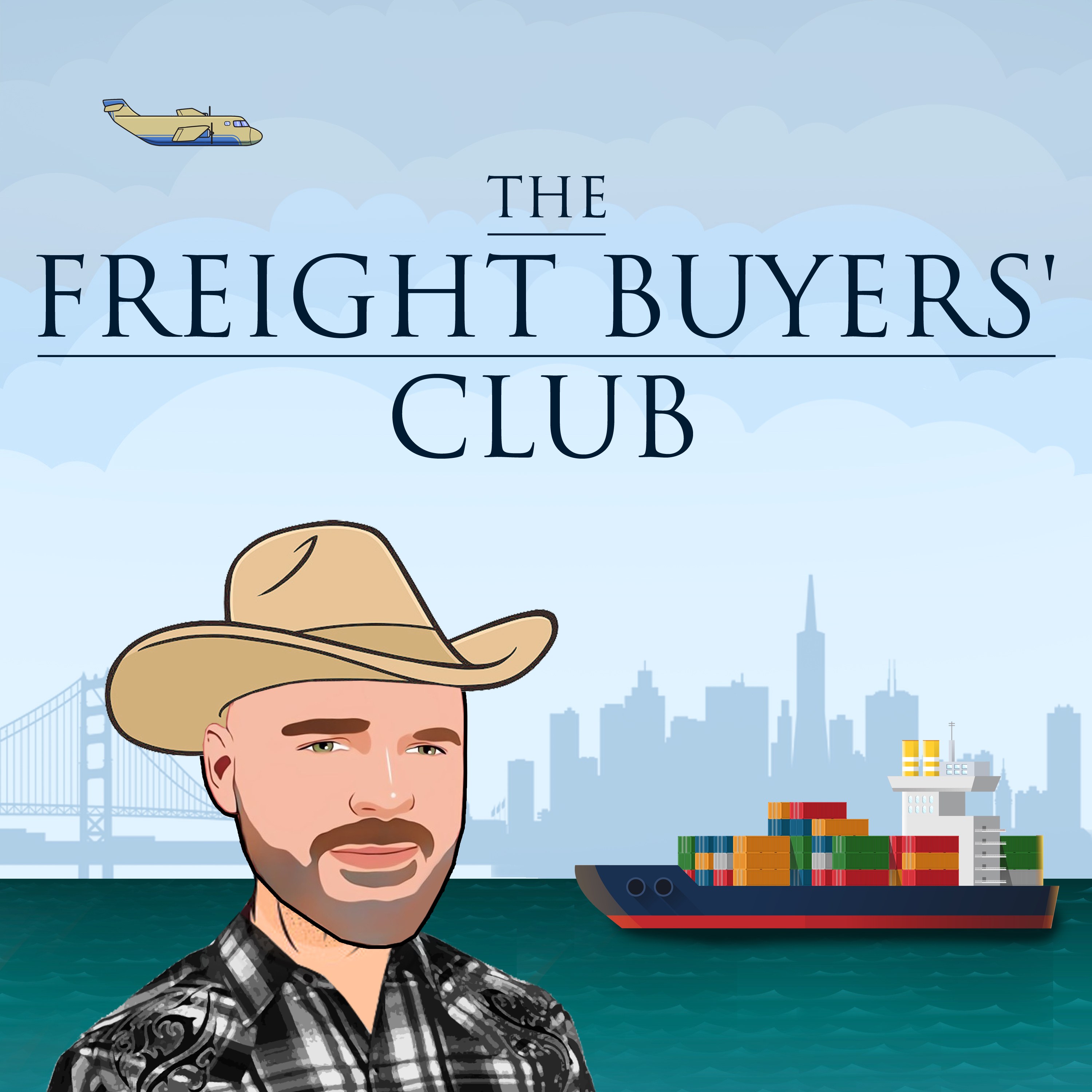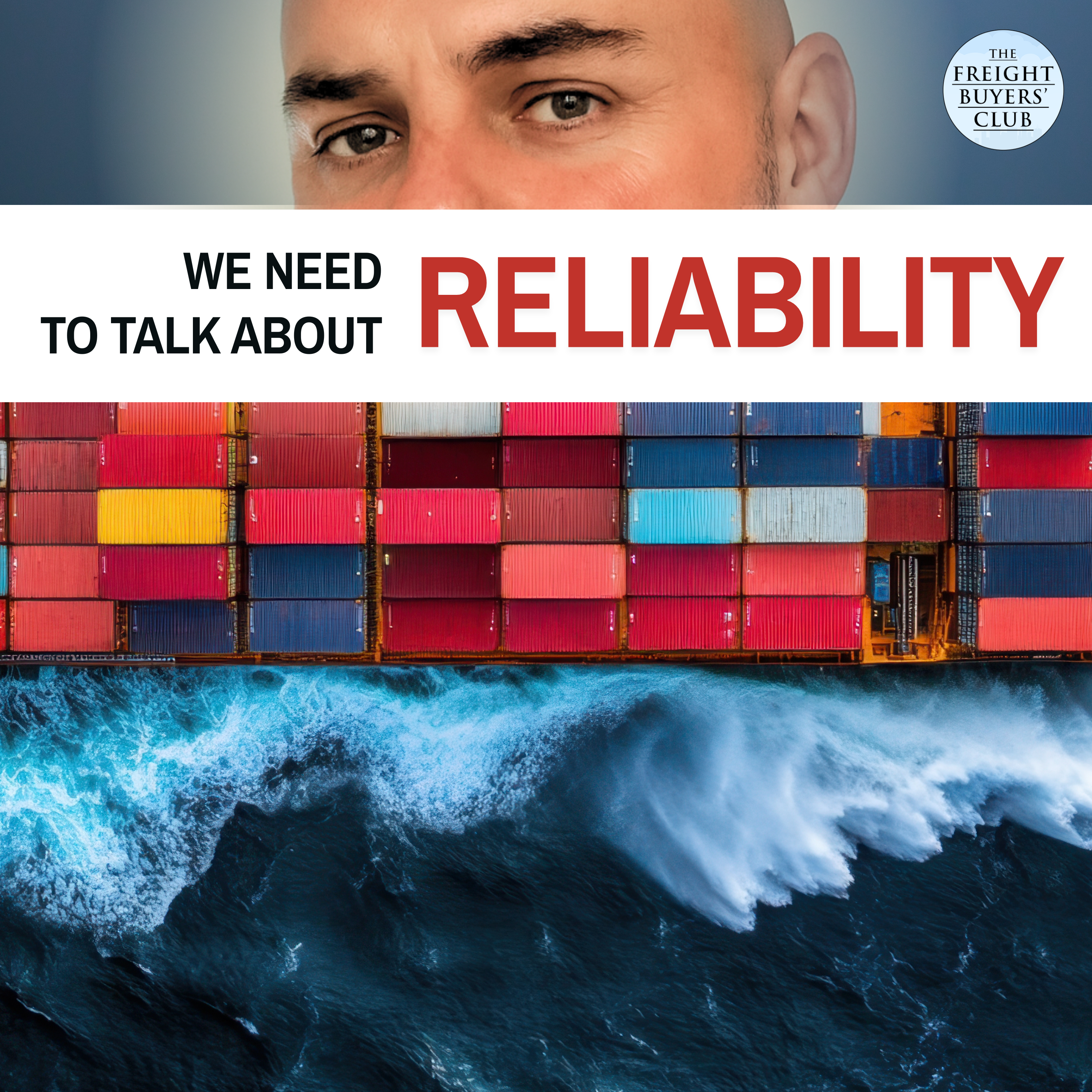Episode Transcript
[00:00:03] Speaker A: Hello. I'm here today in a vast, a vast DHL EV facility in Dubai where DHL have been launching a big, huge investment program across the UAE and Saudi Arabia. I'm here with Amadou Diallo, who's the CEO for DHL Global Forwarding for the Middle east and Africa. Hello, Amadou, how are you?
[00:00:26] Speaker B: Hi, I'm fine. Thank you very much for being with us.
[00:00:29] Speaker A: Amadou, you've just given a presentation about the logistics and forwarding situation in the Middle East. At the moment you were talking about challenges and I want to talk about some of the things that you raised, which is regulations and attracting personnel. But the sort of the elephant in the room slightly was the disruption we've seen in global supply chains from the closure of the Red Sea. There's been a threat to shipping in the Arabian Gulf as well. Can you tell me how DHL has been rerouting cargo? What sort of solutions have you been finding for customers and how's it affected Dubai as a logistics hub?
[00:01:04] Speaker B: Well, so, you know, at first it was a pretty big challenge because we had to go and use all of our BCPs, business contingency plans to be able to operate for mostly the large customers that we do have because they always require you to have a BCP in terms of security.
But then what we found out is that all of our BCPs became standard solutions.
So for instance, we had a BCP in terms of being able to divert ships throughout Salalah and then get the shipments into tracking to bring them down to Saudi Arabia or to all the rest of the GCC countries.
So everything that will be stuck in Salalah will be connecting by road through the rest of the gcc. We had the same for shipments that are coming from Europe. So we would stop in Jeddah and then transfer them into multimodal solutions to bring them in Saudi, but also in the rest of the gcc. And we created a similar hub in Qatar in terms of bringing shipments through Doha by road to Saudi, but also to the rest of the gcc. So that means that now we have three gateways.
So, you know, the port in Doha, the port of Jeddah and the port of Salalah, which we are utilizing to be able to connect the rest of the GCC in a multimodal way. And that helped us help our customers save up to 20 days in terms of saving time, as opposed to if they would be going through the Cape of wood hope, etc. So it was a big challenge at the beginning. It ended up becoming a big opportunity and helped us gain a lot of customers.
[00:02:29] Speaker A: And did you see Sea air business pick up as well?
[00:02:32] Speaker B: Yes. So we created what we call Ahlan Gateway in the uae.
And there you had a lot of no shipments coming by sea and then flying out from. From the uae. We particularly created a second hub in, in Addis Ababa to be able to service all the rest of the countries in SSA because, you know, you had less capacity coming in. But therefore we consolidated a lot of shipments coming from us, from Europe and from Asia to come through via Dubai and then be channeled to Addis and then be dispatched across all of the African countries. That was, for example, the CA solution that we put in place.
[00:03:08] Speaker A: And the closures of airspace has not been too problematic.
[00:03:11] Speaker B: No. Every time that there's a close of airspace, there's an opportunity.
Yeah, forwarders.
[00:03:16] Speaker A: Yes, of course, of course. You always find a way. So the investment in the UAE and Saudi Arabia, can you tell us a little bit about that, what it means for your forwarding customers?
[00:03:26] Speaker B: Yeah, for our forwarding customers. First of all, it meant that first we had to streamline and integrate all of the acquisition we had in the UAE. So we have now one entity that is operating over 19 facilities with over 260,000 square meters of warehousing and one unique system which we are talking to customers with. The second one is that, you know, we integrated this as part of the whole network so that we could have a global gateway in the UAE, which we didn't have before, which is operating for all the markets that we do touch. And lastly, you know, it helped us be able to leverage on the tenants that we do have here to be able to dispatch them in the rest of the organization.
So, for example, we use a lot of our resources in the UAE to more than double our resources that we needed in Saudi to be able to expand in Saudi. So, you know, in Saudi, by the time we did the acquisition, we had three offices. Now we are operating in more than eight offices. And it is really through the help of our capabilities and talent that we have built up in the UAE that we are able to expand that. So for us, it has been investment in resources first. Then the second one was investment in systems. So we streamline all of our systems that we are operating with. And lastly, we invested in a lot of assets. So, you know, in the uae, we have a lot of trucks that are moving. We have the largest fleet of electric trucks that we operate in the network.
And we are working towards making sure that the investment that we had with Etihad Rail, which is our rail direct organization, is going to be helping us build multimodal solutions for the GCC countries. So it's a lot of investment that we have in the uae.
[00:04:52] Speaker A: More acquisitions on the way.
[00:04:55] Speaker B: I wouldn't say on the way. You know, when we have some things on the way, we don't talk about it anyway.
[00:05:00] Speaker A: But you know, I'm taking that as a maybe.
[00:05:03] Speaker B: For us it always is depending on the opportunity that we find and how it completes everything that we have as offering. I've been working in the group when we were starting acquiring the first company, so we acquired more than 800 companies. I think that we are big enough, we have enough solutions, we have enough systems and talented people to actually grow organically.
[00:05:23] Speaker A: And you talked about other challenges of operating in the Middle East. One of them was attracting the personnel and some of the steps that you've taken. The other one was regulations. Can you explain a little bit more about those things?
[00:05:35] Speaker B: So you know, so for example, here in the, in the Gulf, the GCC are having joint strategies to make sure that regulations are streamlined across all of the GCC countries.
Nevertheless, when you're moving borders, you realize that the interpretation is always different from market to market.
Now when you take North Africa, North Africa, you have Egypt and you have Libya, Algeria, you know, and Morocco and Tunisia who have like different historical past. And therefore the red tapes that need to be deconstructed are not fully deconstructed. And we fully believe that fully deconstructing them will help them become much more attractive for investors from abroad. But we have to be able to explain to them and show them how it happens in Singapore, in Hong Kong, in many different places. And the second one is that, you know, it will help us have much more compliant systems because then nobody touching checks or payment platforms because then it is digitally connected. And we believe that that would help accelerate growth in those markets because they have a high demand, they have a high income earning population, but they're not fully leveraged to the opportunity level that they actually do have. And that is what we want to decomplicate.
[00:06:42] Speaker A: Just touching on the African market, could you tell me what's the fastest maybe country or maybe it's a vertical growth in that region.
[00:06:51] Speaker B: From what I see in our own operations, Angola is very, very fast growing.
From what I see in our operations, Morocco is very fast growing.
This year. We see Algeria is booming. You know, so you have a lot of markets. Kenya, Uganda. So you have a lot of markets that are growing very fast. If you look at the World Economic Forum report, you will see that, you know, out of 20, you know, you have like more than 12 countries that are coming from, from the African continent. So I have a lot of opportunities of growth that are presenting themselves there. But you also have a lot of challenges. So it's not like it is not complicated.
And what we are trying to do is to leverage the network that we have established, the system that we have established to be able to accompany the growth for a selected number of companies, because we cannot be growing with everybody.
[00:07:33] Speaker A: If I may finish where I started, how would it affect the ability of this region to grow if we could get shipping, return back to the Red Sea and there was less conflict?
[00:07:44] Speaker B: I think that if you are having less conflict, there would be more market included in the growth story. So at the moment we have Yemen. That is not part of the story at the moment. You have Iran. That is not part of the story at the moment. You have, you know, part of Israel, Lebanon, that are still always a challenge. And similarly, you have Somaliland, you have Sudan. So you have a lot of market that are having some tensions. If you take all of those markets together, you know, it's more than 250 million people that are somehow a little bit excluded. And I think that having peace for them would give opportunity for entrepreneurs that are based in Iran who are very talented or in Yemen, and all these markets participate in global trade. So it would be a much bigger opportunity to grow the region. And I think if you have peace and reconciliation, as people always talk about it, we would be living in a much better world too.
[00:08:33] Speaker A: What a great way to finish peace and reconciliation. Amadou Diallo, DHL Global Forwarding CEO for the Middle east and Africa. Thanks very much for joining me today on the Freight Buyers Club.
[00:08:43] Speaker B: Thank you very much. Very happy to have you here.


